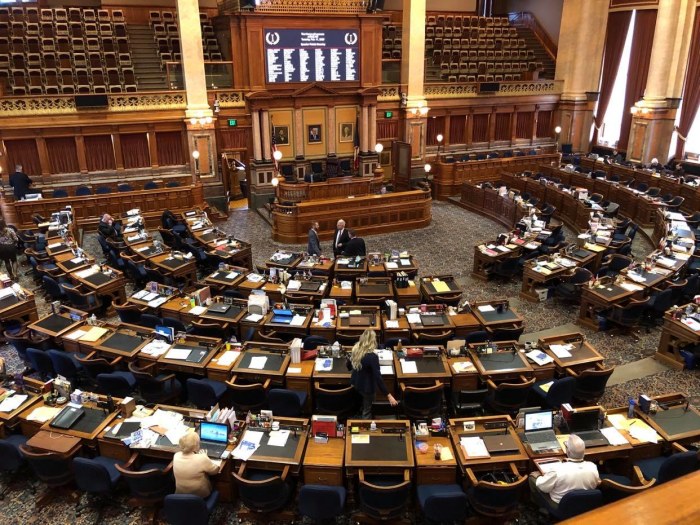Carl Olsen, the founder of Iowans for Medical Marijuana, brings us up to date on his efforts to reconcile state and federal drug laws. -promoted by Laura Belin
Retail sales of medical cannabis products began in Iowa on December 1, 2018, implementing Iowa House File 524, which lawmakers passed on the final day of the 2017 legislative session.
Iowans for Medical Marijuana submitted an application to the U.S. Drug Enforcement Administration in January 2019, seeking to exempt Iowa’s Medical Cannabis Program from federal drug laws. That application used the process in Title 21, Code of Federal Regulations, Chapter 1307, 21 C.F.R. §1307.03. I then began to lobby the state legislature and the Iowa Department of Public Health to support the application.
Thanks in particular to Democratic State Senator Rich Taylor and Republican State Senator Brad Zaun, the Iowa Senate Judiciary Committee added the following amendment to their 2019 medical cannabis bill, Senate File 501:
Notwithstanding any federal regulation to the contrary, the use of medical cannabidiol pursuant to this chapter is not subject to federal regulation.
However, the Iowa House put forward a different bill, House File 732, removing the three percent cap on tetrahydrocannabiniol (THC) and replacing it with a cap of 25 grams of THC per 90 days. Governor Kim Reynolds later vetoed that bill, because the new cap was higher than what Iowa’s Medical Cannabidiol Board recommended (4.5 grams of THC per 90 days).
In June 2019, Iowans for Medical Marijuana submitted a request to the Medical Cannabidiol Board to recommend the state obtain a federal exemption for the state medical cannabis program. The board voted unanimously to support the request at its August 2 meeting (see the minutes).
The board included the recommendation in its Annual Report to the Iowa Legislature on January 1, 2020, page 7:
Facilities that receive federal funding are hesitant to allow medical cannabidiol products to be administered and stored at the facilities due to the current scheduling of Cannabis at the federal level. There are Iowa patients within these facilities who are unable to store their medication at the facility, or have their medication administered by facility staff, because of concerns about adverse consequences for the facilities. Developing language to protect these facilities or seeking exemption for Iowa’s program from federal drug laws would benefit patients and facilities.
In response, lawmakers proposed identical language in Senate File 2363, Sec. 28, and House File 2589, Section 31:
The department of public health shall request guarantees from the agencies of the federal government providing funding to educational and long-term care facilities that facilities with policies allowing patients to possess medical cannabidiol on the grounds of the facilities consistent with chapter 124E or allowing facility staff to administer medical cannabidiol to a patient shall not lose eligibility for any federal funding due to such policies.
House File 2589 prevailed, expanding the program by adding additional medical conditions, additional levels of THC in product formulations, and additional medical providers who can certify patients to enroll in the program. Reynolds signed the bill in June.
Iowans for Medical Marijuana wrote to all candidates running for state legislature on August 23, asking for an amendment to Iowa Code Chapter 124E specifically citing 21 C.F.R. §1307.03. But on September 4, the Iowa Department of Public Health announced that the only way to guarantee federal funding for state authorized use of cannabis would be to apply for an application for exemption using the process in 21 C.F.R. §1307.03.
The Department has determined that it will move forward with seeking an exception for cannabis as a schedule I substance in Iowa from the DEA, in attempt to minimize conflict between State and Federal Law.
We extend our deepest appreciation and gratitude to the Iowa legislature (particularly the Iowa Senate Judiciary Committee and the Iowa House Committee on Public Safety), the Iowa Department of Public Health, and the governor for supporting our efforts.
Top image: State Representative Jarad Klein (with beard) speaks with colleagues in the Iowa House chamber, early in the 2020 legislative session. Photo by Carl Olsen, published with permission.

